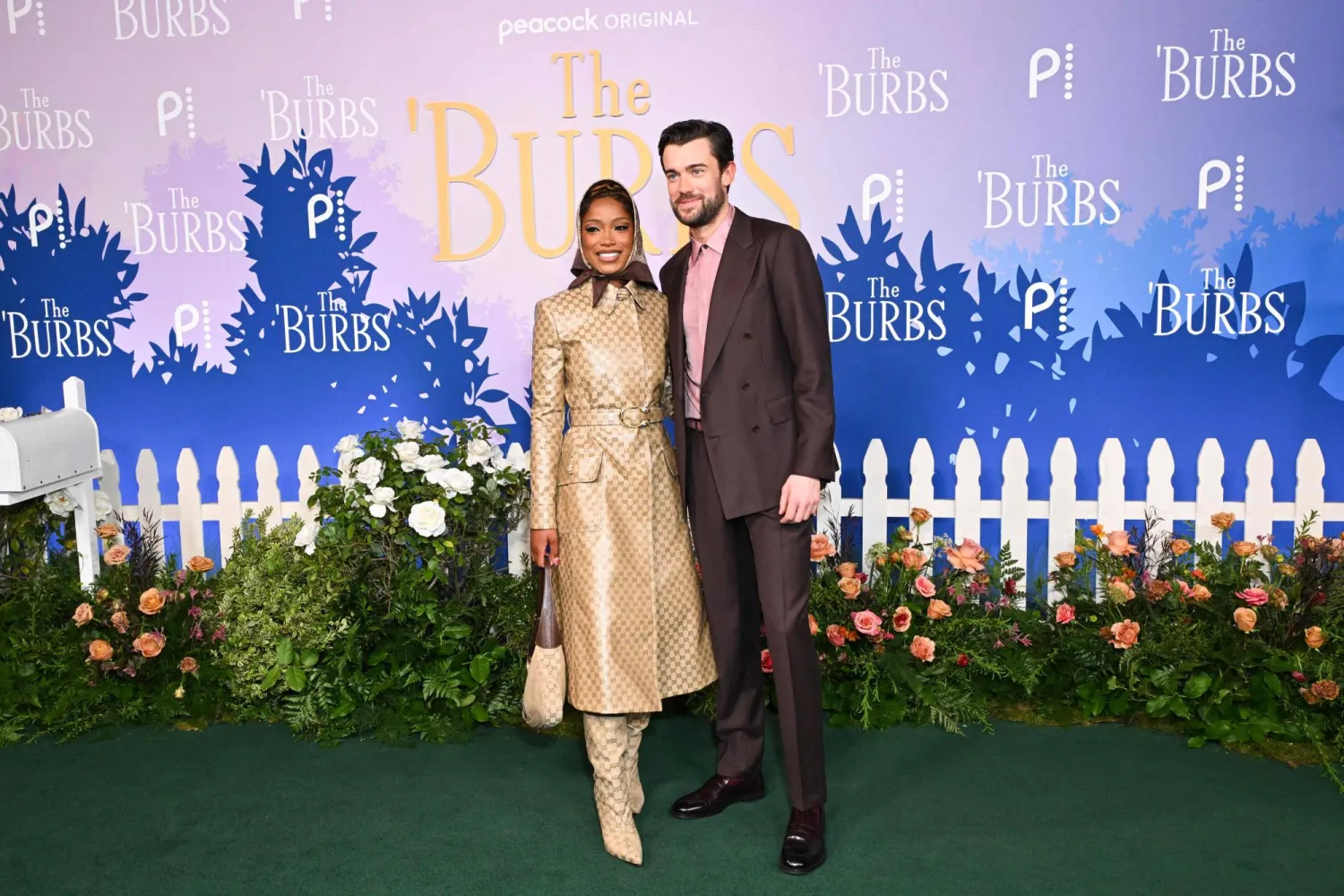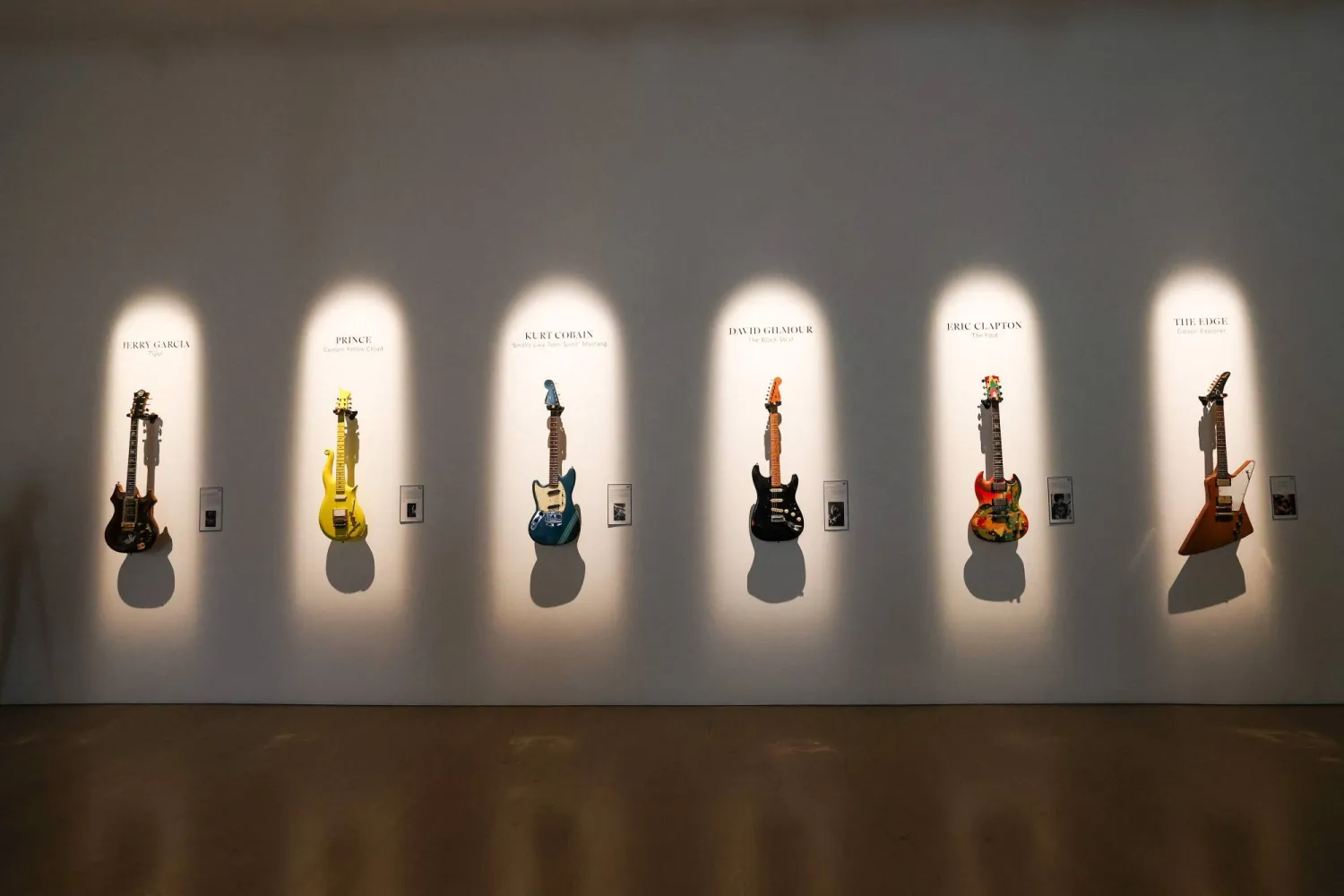Martin Mull, whose droll, esoteric comedy and acting made him a hip sensation in the 1970s and later a beloved guest star on sitcoms including “Roseanne” and “Arrested Development,” has died, his daughter said Friday.
Mull's daughter, TV writer and comic artist Maggie Mull, said her father died at home on Thursday after “a valiant fight against a long illness.”
Mull, who was also a guitarist and painter, came to national fame with a recurring role on the Norman Lear-created satirical soap opera “Mary Hartman, Mary Hartman,” and the starring role in its spinoff, “Fernwood Tonight."
“He was known for excelling at every creative discipline imaginable and also for doing Red Roof Inn commercials,” Maggie Mull said in an Instagram post. “He would find that joke funny. He was never not funny. My dad will be deeply missed by his wife and daughter, by his friends and coworkers, by fellow artists and comedians and musicians, and—the sign of a truly exceptional person—by many, many dogs.”
Known for his blonde hair and well-trimmed mustache, Mull was born in Chicago, raised in Ohio and Connecticut and studied art in Rhode Island and Rome.
His first foray into show business was as a songwriter, penning the 1970 semi-hit “A Girl Named Johnny Cash” for singer Jane Morgan.
He would combine music and comedy in an act that he brought to hip Hollywood clubs in the 1970s.
“In 1976 I was a guitar player and sit-down comic appearing at the Roxy on the Sunset Strip when Norman Lear walked in and heard me," Mull told The Associated Press in 1980. “He cast me as the wife beater on ‘Mary Hartman, Mary Hartman.’ Four months later I was spun off on my own show.”
His time on the Strip was memorialized in the 1973 country rock classic “Lonesome L.A. Cowboy" where the Riders of the Purple Sage give him a shoutout along with music luminaries Kris Kristofferson and Rita Coolidge.
“I know Kris and Rita and Marty Mull are hangin' at the Troubadour,” the song says.
On “Fernwood Tonight” (sometimes styled as “Fernwood 2 Night”), he played Barth Gimble, the host of a local talk show in a midwestern town and twin to his “Mary Hartman” character. Fred Willard, a frequent collaborator with very similar comic sensibilities, played his sidekick. It was later revamped as “America 2 Night” and set in Southern California.
He would get to be a real talk show host as a substitute for Johnny Carson on “The Tonight Show."
Mull often played slightly sleazy, somewhat slimy and often smarmy characters as he did as Teri Garr's boss and Michael Keaton's foe in 1983's “Mr. Mom.” He played Colonel Mustard in the 1985 movie adaptation of the board game “Clue,” which, like many things Mull appeared in, has become a cult classic.
The 1980s also brought what many thought was his best work, “A History of White People in America,” a mockumentary that first aired on Cinemax. Mull co-created the show and starred as a “60 Minutes” style investigative reporter investigating all things milquetoast and mundane. Willard was again a co-star.
He wrote and starred in 1988's “Rented Lips" alongside Robert Downey Jr., whose father, Robert Sr., directed.
His co-star Jennifer Tilly said in an X post Friday that Mull was “such a witty charismatic and kind person.”
In the 1990s he was best known for his recurring role on several seasons on “Roseanne,” in which he played a warmer, less sleazy boss to the title character, an openly gay man whose partner was played by Willard, who died in 2020.
Mull would later play private eye Gene Parmesan on “Arrested Development,” a cult-classic character on a cult-classic show, and would be nominated for an Emmy, his first, in 2016 for a guest run on “Veep.”
“What I did on ‘Veep’ I’m very proud of, but I’d like to think it’s probably more collective, at my age it’s more collective,” Mull told the AP after his nomination. “It might go all the way back to ‘Fernwood.’”
Other comedians and actors were often his biggest fans.
“Martin was the greatest,” “Bridesmaids” director Paul Feig said on X. “So funny, so talented, such a nice guy. Was lucky enough to act with him on The Jackie Thomas Show and treasured every moment being with a legend. Fernwood Tonight was so influential in my life.”
Mull is survived by his daughter and musician Wendy Haas, his wife since 1982.
Martin Mull, Hip Comic and Actor from 'Fernwood Tonight' and 'Roseanne,' Dies at 80

Martin Mull participates in “The Cool Kids” panel during the Fox Television Critics Association Summer Press Tour at The Beverly Hilton hotel on Thursday, Aug. 2, 2018, in Beverly Hills, Calif. Photo by Willy Sanjuan/Invision/AP, File

Martin Mull, Hip Comic and Actor from 'Fernwood Tonight' and 'Roseanne,' Dies at 80

Martin Mull participates in “The Cool Kids” panel during the Fox Television Critics Association Summer Press Tour at The Beverly Hilton hotel on Thursday, Aug. 2, 2018, in Beverly Hills, Calif. Photo by Willy Sanjuan/Invision/AP, File
لم تشترك بعد
انشئ حساباً خاصاً بك لتحصل على أخبار مخصصة لك ولتتمتع بخاصية حفظ المقالات وتتلقى نشراتنا البريدية المتنوعة







